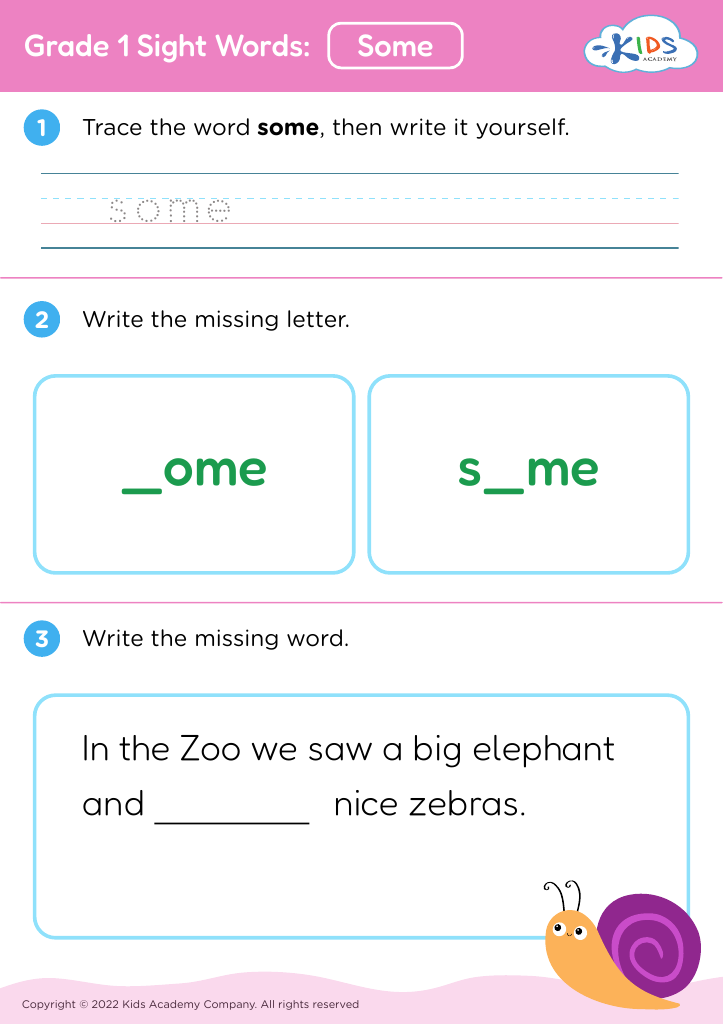Categorization skills Reading Worksheets for Ages 4-8
5 filtered results
-
From - To
Enhance your child's learning experience with our "Categorization Skills Reading Worksheets," specially designed for ages 4-8. These engaging worksheets encourage young minds to categorize and group items based on different attributes, fostering critical thinking and comprehension skills. Each activity is colorful and interactive, making learning both fun and effective. Perfect for independent practice or guided lessons, our worksheets support early literacy development through hands-on experiences. With a variety of themes and difficulty levels, children can explore and master categorization in a playful way. Start building essential reading and cognitive skills today with our thoughtfully curated worksheets!
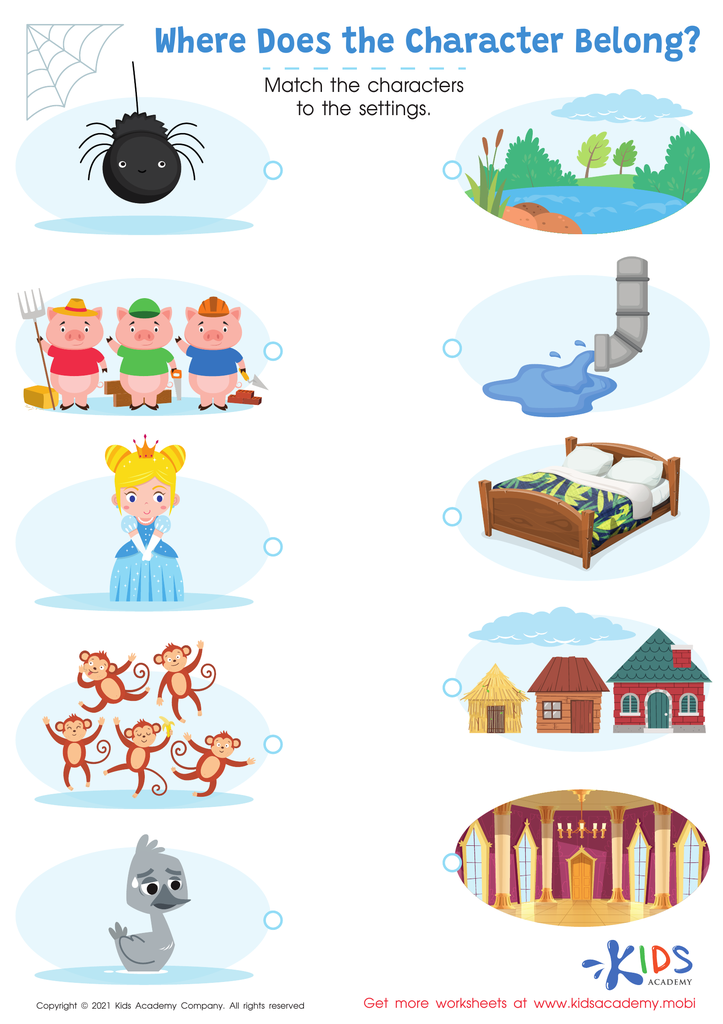

Where Does the Character Belong? Worksheet
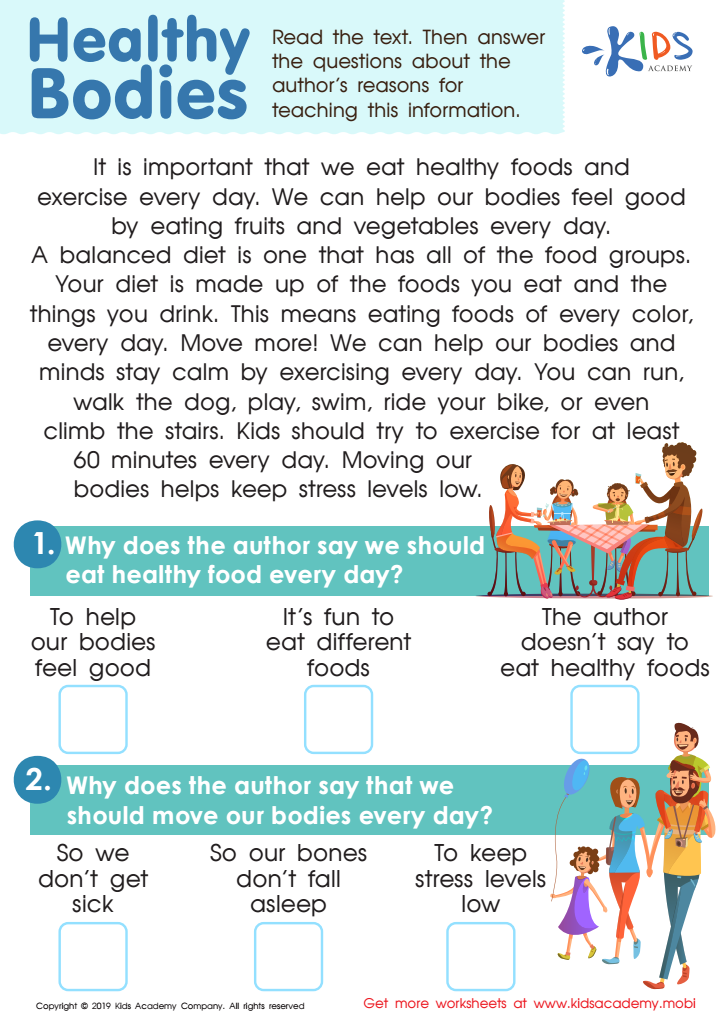

Healthy Bodies Worksheet
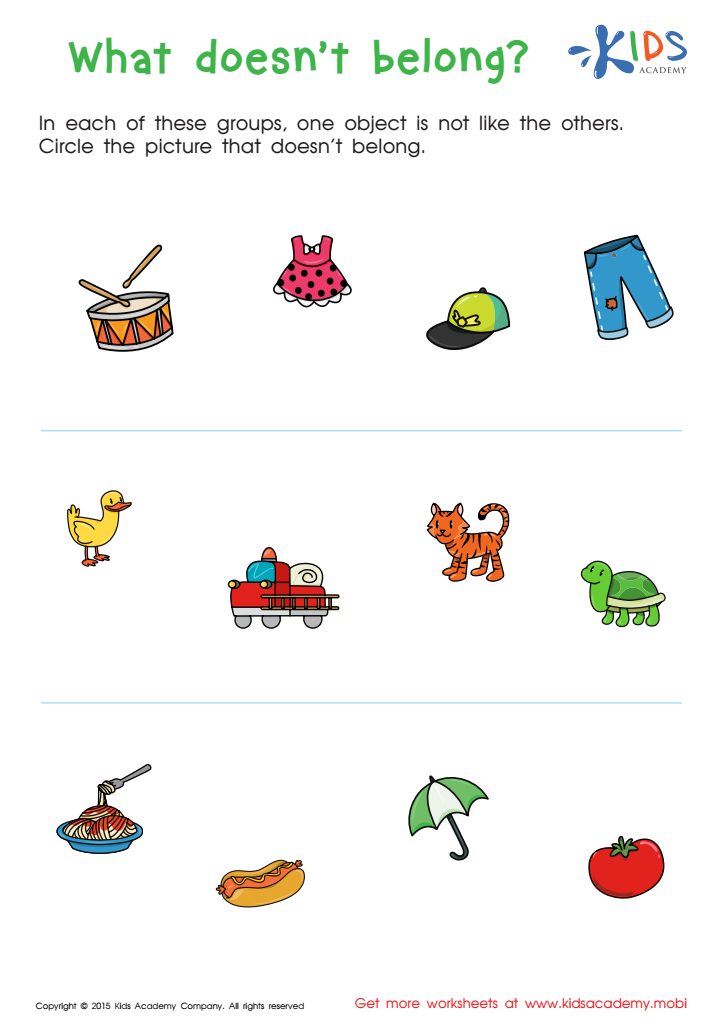

First Words: What Doesn't Belong Worksheet
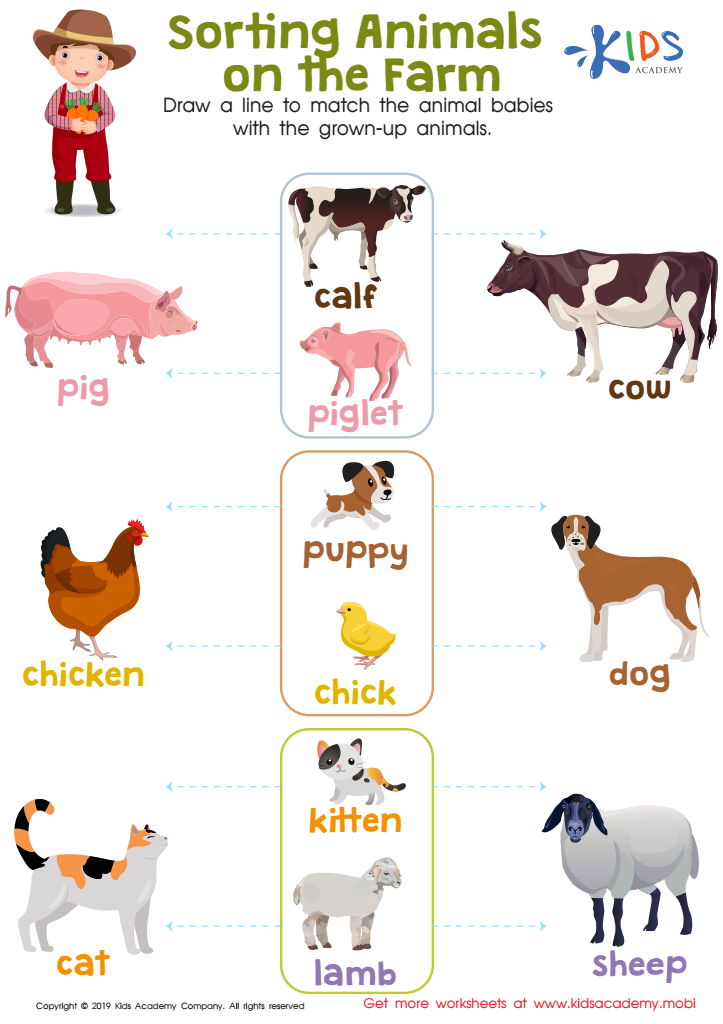

Sorting Animals on the Farm Worksheet
Categorization skills are essential for children aged 4-8 as they lay the foundation for more advanced cognitive processes. For parents and teachers, fostering these skills is vital for several reasons.
Firstly, categorization helps children make sense of the world around them. By grouping similar items, children learn to recognize patterns and relationships, which are fundamental cognitive skills. For example, by sorting animals into categories like "mammals" and "reptiles," children develop a deeper understanding of the natural world.
Moreover, categorization promotes vocabulary development. When children classify objects or ideas, they are introduced to new words and concepts. This builds their reading comprehension skills, as they learn to categorize information, essential for understanding stories and texts.
Additionally, categorization supports critical thinking and problem-solving abilities. Children learn to analyze and group information, encouraging logical thinking. This skill is particularly relevant in literacy, where they must identify themes and main ideas.
Finally, categorization fosters social skills through interactive play and discussions, enabling children to share ideas and collaborate. In essence, enhancing categorization skills not only supports literacy development but also equips children with important life skills, making it a priority for parents and educators alike.
 Assign to My Students
Assign to My Students
